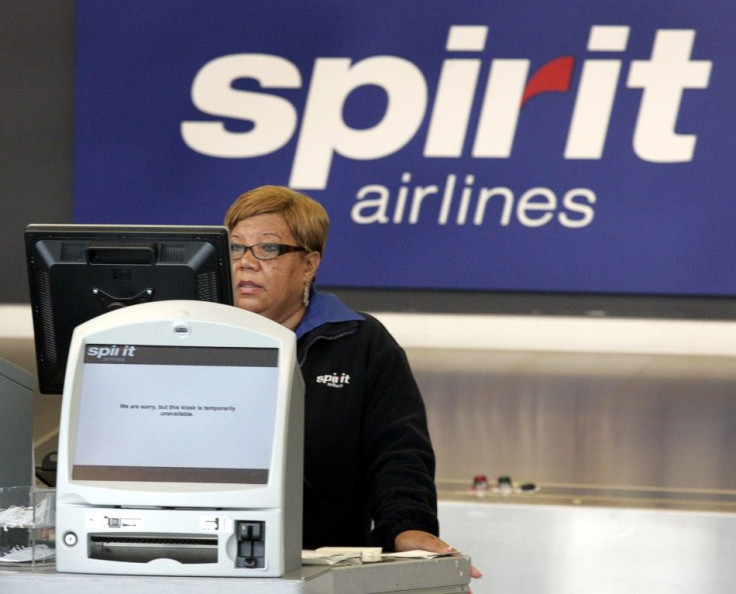Spirit Airlines Carry-On Luggage Fees To Cost Up To $100

Leave it to Spirit Airlines to keep you guessing about the price of your flight. After losing its battle against the Department of Transportation's Jan. 26 passenger protections plan, the airline announced that beginning Nov. 6 carry-on baggage fees will go up substantially.
Spirit, known for its a la carte offerings, is credited with initiating the carry-on charge. It was the first airline to do so in 2010 and now it's more than doubling the fee for certain passengers.
Beginning in November, passengers who wait to pay for their carry-on until they arrive at the gate may get sticker shock in the form of a $100 fee ... each way. The modified fee would apply to both domestic and international flights.
According to the airline's website, that fee is currently $45.
Those that plan ahead can save a substantial amount of money. Carry-ons paid for at booking will cost $35 (up from $30). At online check-in, the rate rises to $40 (up from $35).
Other baggage fees set to rise Nov. 6 are laid out on the company's website. Most options will increase between $5 and $10, though some international fees will be reduced.
The low cost carrier describes a carry-on as a bag that needs to go in the overhead bin. Smaller items that fit under the seat remain free of charge. Spirit is one of just two domestic carriers that charge for carry-ons after Allegiant Air instituted the fee last month. Allegiant charges as much as $35 per bag.
Spirit claims the baggage fees help keep base fares as low as possible for customers.
We empower customers to save money on air travel by offering ultra-low base fares with a range of optional services for a fee, allowing customers the freedom to choose only the extras they value, the company said on its website.
Essentially, Spirit argues that travelers who do not feel the need to carry much luggage or choose their seat may save a great deal of money in the unbundled pricing structure.
For those that do need these amenities, Spirit's Optional Fees page offers an expansive list of charges from seat selection to the Unintended Consequences of DOT Regulations Fee. These fees ensure that your initial $20 airfare looks quite different when all is said and done.
Ted Christie, Spirit's Chief Financial Officer, said Spirit had to make certain adjustments to remain profitable.
Despite achieving among the best first quarter results in the industry, we will not relax our vigilance toward further improving our cost structure, he said in a statement on May 1. We must remain focused on offsetting cost headwinds, including rising jet fuel prices and aircraft maintenance expenses, in order to maintain our competitive advantage.
A Wall Street Journal report shows that during the first quarter of 2012, Spirit Airlines secured over $50 per passenger per flight segment in ancillary revenue, with the average person paying $103.36 in extras per round trip. This non-ticket revenue accounted for over 40 percent of the airline's total revenue in the first quarter of 2012.
Compare that to 2006 when Spirit's non-ticket revenues totaled just $4.80 per passenger per flight, according to an IdeaWorks report. The report argues that Spirit's so-called optional fees have increased at a dramatic rate.
Have Spirit's fees gotten out of control or do they help travelers save on airfare? Share your thoughts in the comments below.
© Copyright IBTimes 2024. All rights reserved.






















